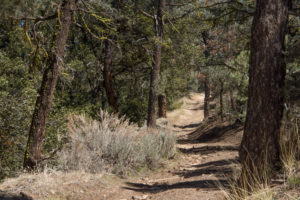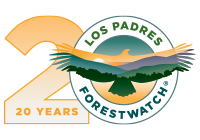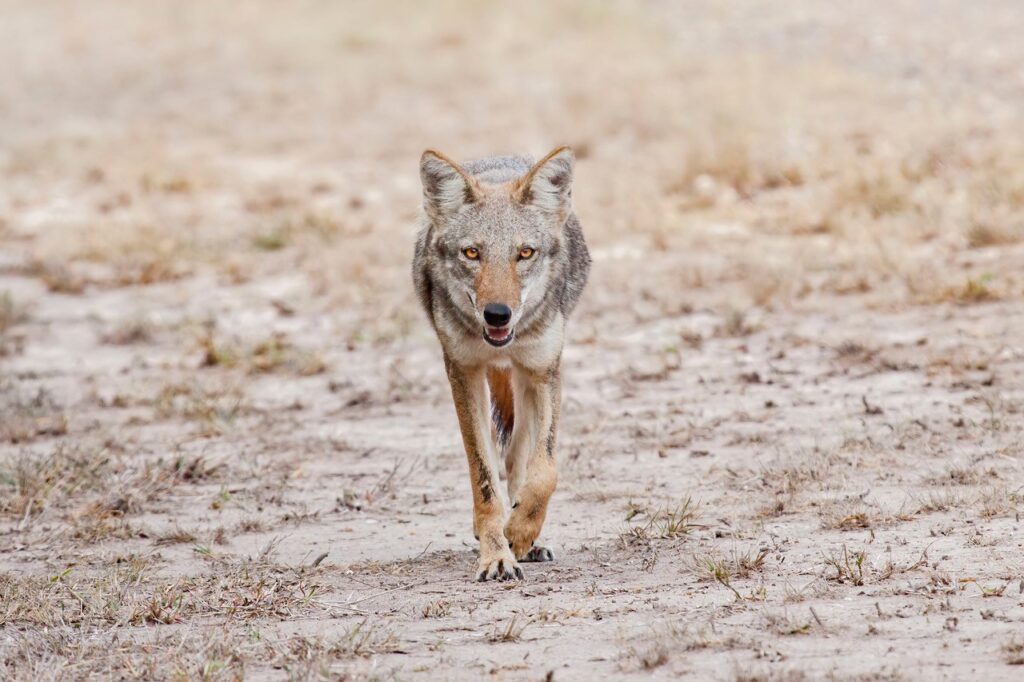
The Forest Service is currently proposing a massive logging project within an Inventoried Roadless Area near Mt. Pinos. The Farm Bill’s expanded loopholes would allow this project to be twice as large without a full environmental review.
Washington, D.C. – Tucked away in the 2018 Farm Bill (H.R. 2) that passed the House late last week are multiple provisions that would fast-track logging and other development projects up to ten square miles in size in the Los Padres National Forest and other forests throughout the country.
Though the 748-page Farm Bill mostly pertains to agricultural programs, it also provides a vehicle for anti-environmental members of Congress to attach unrelated provisions that would severely undermine public lands. The House version of the bill drastically guts protections on national forest lands, including old growth forests and pristine roadless areas, by fast-tracking new and permanent road building and commercial logging of up to 10 square miles with minimal environmental review and public input.
The Forest Service is already attempting to fast-track two massive commercial logging and habitat clearing projects near Mt. Pinos near the county lines of Ventura, Kern, and Los Angeles, across 4.5 square miles of some of Los Padres’ only mixed-conifer forest. The area is an important habitat for birds including the federally endangered California condor, other rare and sensitive species, and vast stands of old conifers. If the House version of the Farm Bill becomes law, more environmentally harmful projects like this would be approved.
“The House Farm Bill prioritizes timber industry profits over forest health, wildlife, clean water, and recreation,” said Los Padres ForestWatch Public Lands Advocate Rebecca August. “It leaves our wildest places, the few places in our country that have never been disturbed by industrial activity, vulnerable to irrevocable harm.”
The House Farm Bill excludes 46 types of projects in national forests from full environmental review, and minimizes the public’s ability to review, comment on, and appeal them, including:
- Logging and chaparral clearing projects up to 6,000 acres (10 square miles) in size
- Aerial spraying of herbicides that will pollute waterways and harm pollinators
- Bulldozing new roads up to 3 miles long in pristine roadless areas
The bill also allows the Forest Service to ignore the advice of federal wildlife experts. Instead, after conducting minimal environmental review, the Forest Service would be the sole authority for determining whether a project would harm endangered or threatened plants and animals — upending more than four decades of working collaboratively with the U.S. Fish & Wildlife Service and NOAA Fisheries.
Next Steps
Congressmembers Salud Carbajal (D-24), Julia Brownley (D-26), and Jimmy Panetta (D-20) — whose districts cover most of the Los Padres National Forest — voted against the bill, while Congressman Kevin McCarthy (R-23) — whose district covers the Kern County portion of the Los Padres National Forest — voted for the forestry loopholes.
The Senate will soon vote on its own version of the Farm Bill (S. 3042), which does not include the damaging forestry provisions. The two houses will likely go to conference over the different versions of the bill to decide on legislation they can both support.
“We are hopeful that our leaders in the Senate will take a more bipartisan approach and ditch these environmentally harmful provisions,” said August. “The health of our national forests — and the communities that depend on them — is at stake.”
ForestWatch is working with our partners statewide and in Washington, D.C. to remove the harmful provisions from the Farm Bill. We joined more than 120 land and wildlife conservation organizations throughout the country in sending a letter to members of the House prior to their vote. We also joined a similar letter to the Senate Agricultural Committee, urging them to oppose any amendments to the Senate Farm Bill that would weaken protections for conservation programs, communities, wildlife, forests, and other public lands. Sign up for our Action Alerts to learn about how you can send your concerns to the Senate in the coming days.







Comments are closed.